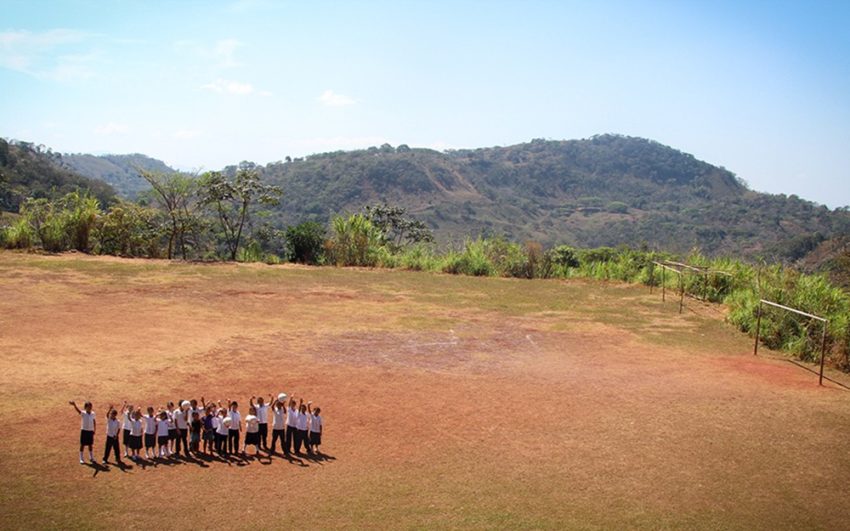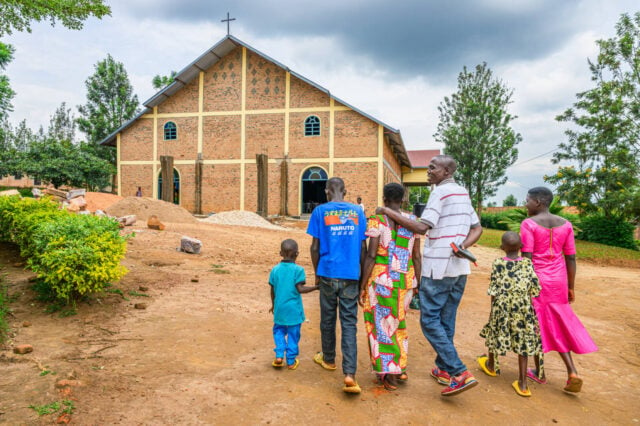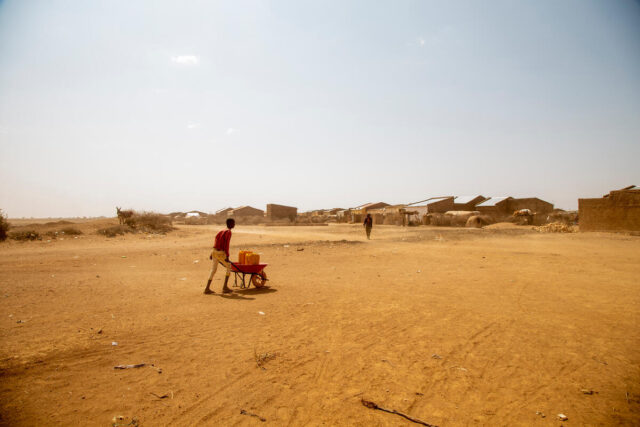I used to love being a “voice for the voiceless.” As a fundraising officer at World Vision, it is one of my great privileges to be able to whisper into the ears of the wealthy about the needs of the poor and hope that God got there ahead of me.
But on my first day back from a recent trip to El Salvador with World Vision supporters, I read a quote that challenged my preconceptions and brought the whole trip experience into focus.
While in the country, our group saw the breadth of World Vision’s work to improve the lives of children — much of it being done by volunteers.
Speak up for those who cannot speak for themselves, for the rights of all who are destitute. Speak up and judge fairly; defend the rights of the poor and needy.—Proverbs 31:8-9 (NIV)
When we wanted to learn what World Vision was doing to equip the churches, we met with the pastors and volunteers who are on the Christian commitments committee. When we visited a water project, we learned about it from the local water board members. When we saw child protection work, we met youth leaders and a teacher and others who are all part of the child protection coalition. When the topic was health, we met health professionals, teens, and “mother coach” volunteers who serve on the health committee.
All this talk about volunteer committees may sound uninteresting or even bureaucratic, but the big idea is for World Vision to mobilize various “actors” in the community to come together, work together, get equipped to do more, and learn to speak into the halls of power whether locally or nationally — and find their own voice.
The shared goal is always to improve the well-being of children, so anyone in the community who cares about children is not only welcome but proactively invited and expected to participate in these community endeavors.
Our supporter group’s final day was in a development project that is only three or four years old. One member said that a high point of her trip came when she asked the project manager how they get all the work done. He explained that they have eight staff — and 300 volunteers.
Community volunteers are the people who make it happen, setting the agenda and priorities of their teams with guidance and capacity-building help from World Vision staff. They, much more than the staff, are making the change we — and they — want to see happen in their communities. In the process, they are empowered to think of themselves differently and dream bigger than they ever thought possible.
All of these thoughts were rumbling in my heart and head as I read In the Company of the Poor the next day and came to the following paradigm-bender by Latin theologian Gustavo Gutierrez:
There is no true commitment to solidarity with the poor if one sees them merely as people passively waiting for help. Respecting their status as those who control their own destiny is an indispensable condition for genuine solidarity. For that reason the goal is not to become, except in cases of extreme urgency or short duration, the “voice of the voiceless” as is sometimes said — undoubtedly with the best of intentions — but rather in some way to help ensure that those without a voice find one.
Helping the “voiceless” find their own voice was in fact the underlying theme of everything we saw and experienced in El Salvador, and it was beautiful to witness.
It’s true that Scripture calls us to “Speak up for those who cannot speak for themselves, for the rights of all who are destitute. Speak up and judge fairly; defend the rights of the poor and needy” (Proverbs 31:8-9, NIV).
But let me say — even happily now — that this is the second-best solution. As beautiful as it is to defend the rights of another, how much more beautiful when that one can defend fairly their own rights?
It’s actually tougher than we might admit to give over the reins of control to those who have been powerless. How much we secretly enjoy being “benevolent” but ultimately maintaining control.
But as we heard it said in El Salvador, we must remember that the poor are “the actors in their own play.” Thus, they — not we — are the ones who must ultimately make the decisions which will most affect their lives. Trusting them to do so is the challenge for all of us.
In fact, Jesus’ invitations to us are much more whisper than commandment (other than the command to love). And though that whisper still evokes a violent rejection by some, which we mark every year on Good Friday, yet we would have it no other way.
So maybe I still get to whisper to the wealthy and trust my colleagues abroad to treat the poor with that same dignity and respect. We each are the actors in our own play.
Cory Trenda has more than three decades of experience working in international nonprofits, predominantly in poverty-alleviation efforts. While living in Silicon Valley during the “Tech Boom,” he became inspired to see the critical importance of innovation and wise risk-taking in order to accelerate achieving the world’s most pressing objectives: the well-being of children and the end of extreme poverty. Thus, he led the launch of World Vision’s industry-leading innovation fund.


